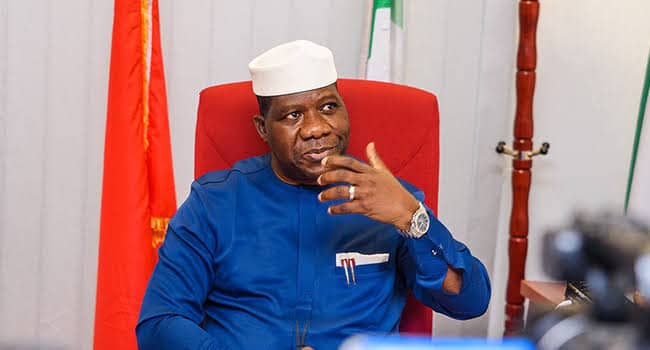
The Senate Leader, Opeyemi Bamidele, has recalled how the Minister of Education, Dr. Tunji Alausa, played a crucial role in supporting exiled activists during the military regime of the late General Sani Abacha.
Bamidele, who represents Ekiti Central in the National Assembly, revealed Alausa’s interventions for chieftains of the National Democratic Coalition (NADECO) who fled Nigeria during the Abacha’s regime.
Several prominent figures were forced into exile during Abacha’s regime, including pro-democracy icon Chief Anthony Enahoro, Nobel laureate Prof. Wole Soyinka, President Bola Tinubu, NADECO’s first Secretary-General, Chief Ayo Opadokun, and former House of Representatives Chief Whip, Olawale Oshun.
Speaking at the inauguration of the governing council and principal officers of a federal university in Abuja, Bamidele stated that many of them had sustained serious injuries while fleeing persecution and urgently required medical attention.
He explained that Alausa, then undergoing residency in Internal Medicine at the Royal Bolton Hospital and the University of Newcastle between 1995 and 1997, provided critical medical care, free of charge, to many exiled pro-democracy leaders in both Europe and the United States.
Bamidele said, “The honourable minister was one of the few people we relied on for years while in exile.
“He was then a successful medical doctor in the United States. He gave us hope, financial assistance, and vital medical care. Some beneficiaries are still alive today; others have passed on.
“Many of us needed knee surgeries and treatment for injuries sustained while being hunted by Abacha’s goons. We were tear-gassed, attacked, and forced underground. But in exile, Alausa rallied medical professionals and resources to treat us.”
Bamidele further disclosed that when Tinubu became governor in 1999, he offered Alausa a cabinet position in recognition of his sacrifices.
However, Alausa turned it down, insisting his actions were driven not by political ambition but by a genuine desire to support the cause of democracy and protect its advocates.
“He didn’t do it for any reward. He simply wanted to ensure that those fighting for Nigeria’s democracy received the care and dignity they deserved,” he stated.
The Senate Leader also credited Alausa with initiating several medical outreach programmes across the South-West following the return to democratic rule on May 29, 1999.
“When many of us returned home at the dawn of the Fourth Republic, Alausa didn’t just watch from abroad. He spearheaded free medical missions, distributed eyeglasses, and coordinated various surgical programmes across the South-West,” Bamidele said.

